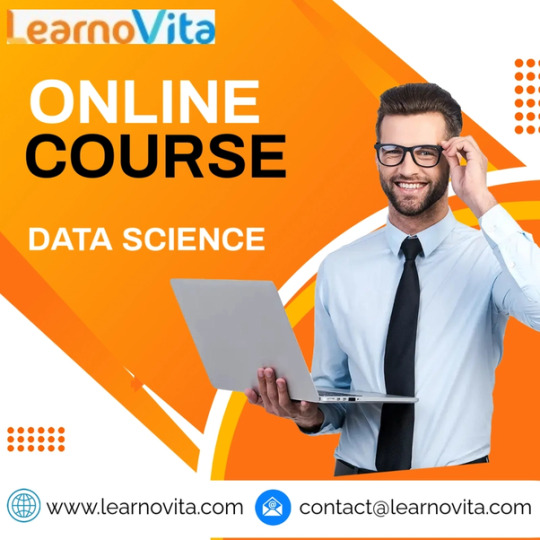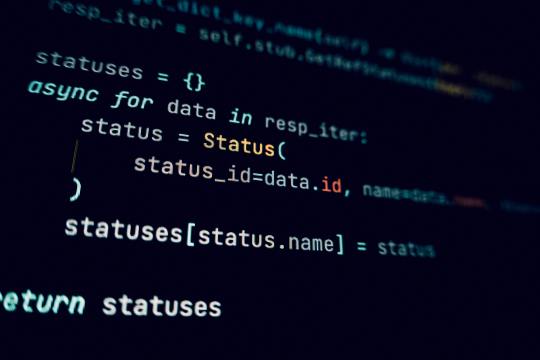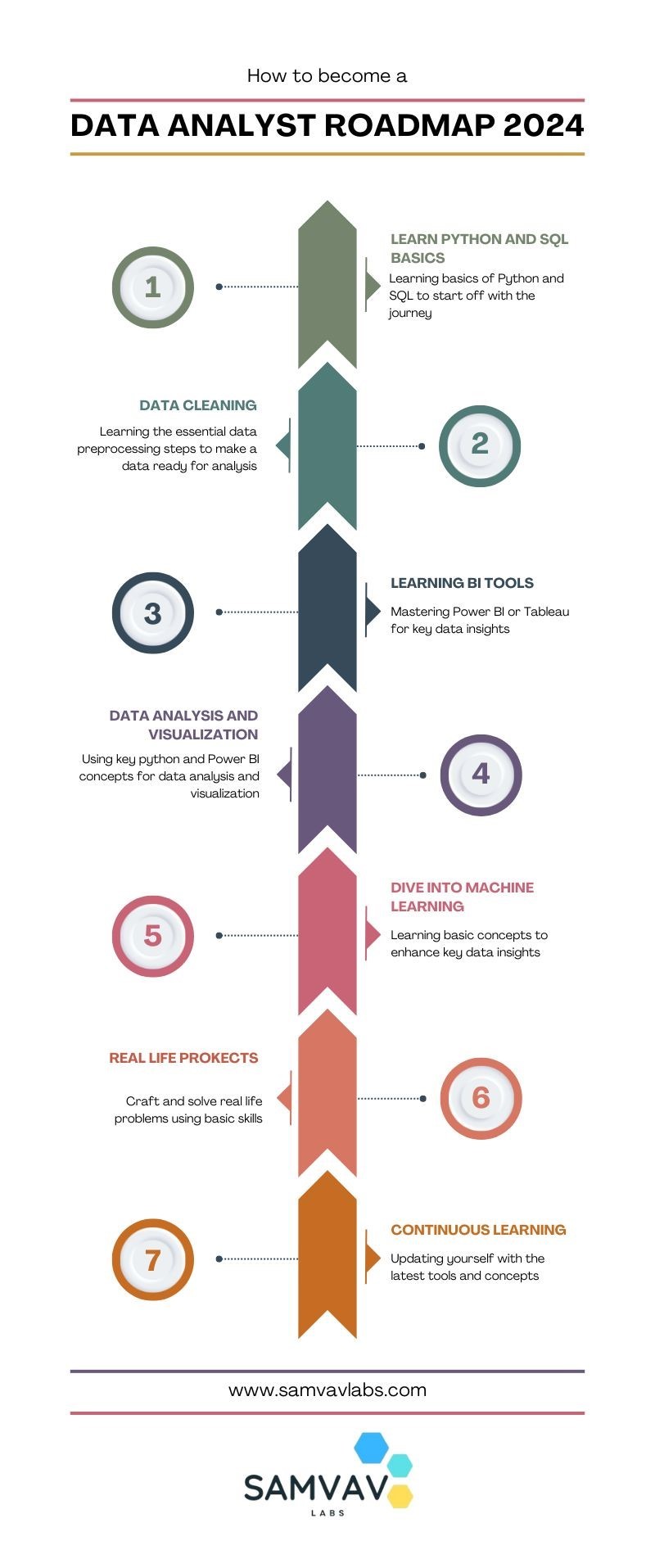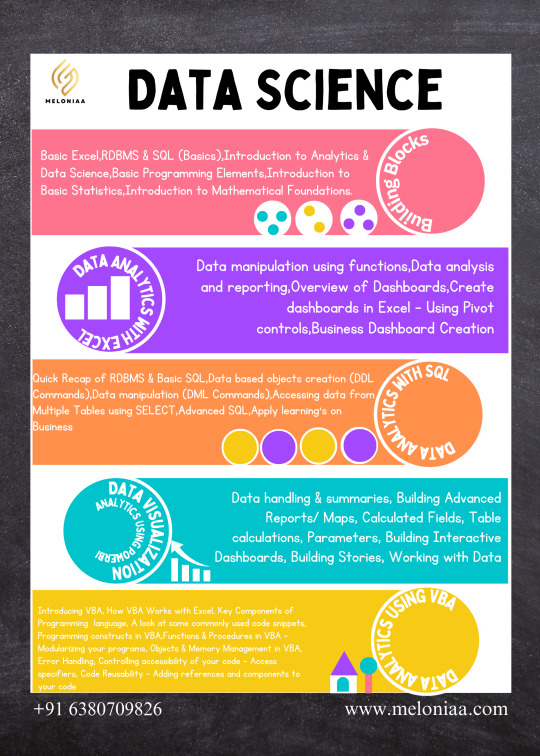#datascience course
Explore tagged Tumblr posts
Text

#java training hyderabad#full stack python course in hyderabad#datascience course#software training institute#apec trainig
0 notes
Text
Step Into the Future with Data Science Courses in Hyderabad
Data Science is one of today’s most in-demand careers, and Hyderabad is the perfect place to start. With hands-on training and industry-aligned skills, Data Science Courses in Hyderabad prepare you for real-world roles in tech, finance, healthcare, and more. Whether you're a beginner or switching careers, now is the time to build a future-proof path in this growing field.
0 notes
Text
How Much Time Does It Take to Learn Data Science?
Hi everyone. Data science is one of the most exciting and in-demand careers today. From predicting trends to helping companies make better decisions, data scientists play a big role in our data-driven world. But many people wonder, how long does it take to learn data science?

The answer depends on a few things—your background, how much time you can commit, and what level you want to reach.
If You’re Starting from Scratch
If you’re completely new—no coding, no math background—learning data science may take about 12 to 18 months. This includes learning Python or R, basic statistics, data visualization, and machine learning. You’d also need to understand how to work with data using tools like Pandas, NumPy, and SQL. If you want to advance your career at the Data Science Course in Chennai, you need to take a systematic approach and join up for a course that best suits your interests and will greatly expand your learning path.
Spending 10–15 hours a week studying can help you reach a beginner-to-intermediate level within a year.
If you already know programming or statistics, you can learn faster. Many people with a tech background can pick up data science in 6 to 9 months, especially if they focus on real-world projects and hands-on practice.
Key Areas to Learn
To become a data scientist, you'll need to cover topics such as
Programming: Usually Python or R
Math & Statistics: For understanding patterns and building models
Data Analysis: Using tools like Excel, Pandas, and SQL
Machine Learning: Algorithms like decision trees and regression
Data Visualization: Tools like Matplotlib, Seaborn, or Tableau

With the aid of Best Online Training & Placement programs, which offer comprehensive training and job placement support to anyone looking to develop their talents, it’s easier to learn this tool and advance your career. Learning Paths
There are many ways to learn data science:
Online Courses: Websites like Coursera, edX, and Udemy
Bootcamps: Fast-paced programs (3–6 months full-time)
University Degrees: More in-depth but takes 2–4 year
Self-study: Flexible, but requires discipline
Conclusion
Learning data science is a journey, not a race. It can take anywhere from 6 months to 2 years, depending on your pace. The best way to speed up your learning is to build projects, join communities, and stay curious.
So don’t worry about how long it takes. Focus on steady progress, and you’ll get there before you know it!
0 notes
Text
📊 Data Science: The Fuel of the Future
Hey tech fam 👋 Ever wonder how Netflix knows exactly what you want to watch next? Or how your spam emails get filtered with surgical precision? The answer is... Data Science! 🚀
✅Full Stack Data Science & AI @ 9:00 AM (IST) by Mr.Deepak From 8th May click the link to Register : https://tr.ee/KeZBWz
✅Full Stack Data Science & AI @ 4:00 PM (IST) by Mr.Prakash Senapathi From 5th May click the link to Register : https://tr.ee/etxeqC
🌐 So, What Is Data Science?
Data Science is like being a detective—but instead of chasing criminals, you're chasing patterns in data. 🕵️♂️ It’s a perfect blend of:
Math & Statistics 📐
Programming (think Python & R) 💻
Domain Knowledge (so you know what you're solving) 🧠
Machine Learning & AI 🤖
If you love solving puzzles, this field will blow your mind. 💥
🧠 Why Should You Care?
Because it’s EVERYWHERE.
📈 Businesses use it to make decisions. 🧬 Healthcare uses it to predict disease outbreaks. 🎧 Spotify uses it to recommend your next jam.

And the best part? It’s one of the highest-paying fields in tech today.
💡 How to Start?
Wanna break into Data Science but don’t know where to start?
Learn Python 🐍 (trust me, it's beginner-friendly)
Get comfy with stats 🧮
Play with real datasets (Kaggle is your playground!)
Take a beginner-friendly course — Naresh IT has great ones! 🎓
Build cool projects like price predictors or recommendation engines
🎓 Pro Tip:
“Start small, stay consistent, and don’t be afraid to get messy with data.”
📍Follow for more tech bites, course updates, and free resources. 💬 Got questions? Drop them below or DM anytime!
#datascience course#data analytics#datadrivendecisions#datanalysis#machine learning#technology#artificial intelligence
0 notes
Text

Data Science Intern Resume
https://360digitmg.com/blog/data-science-resume-for-freshers
0 notes
Text
#back end web development course#datascience course#machine learning#data analytics#business intelligence#language processing
0 notes
Text
Why Learning Python is the Perfect First Step in Coding
Learning Python is an ideal way to dive into programming. Its simplicity and versatility make it the perfect language for beginners, whether you're looking to develop basic skills or eventually dive into fields like data analysis, web development, or machine learning.
Start by focusing on the fundamentals: learn about variables, data types, conditionals, and loops. These core concepts are the building blocks of programming, and Python’s clear syntax makes them easier to grasp. Interactive platforms like Codecademy, Khan Academy, and freeCodeCamp offer structured, step-by-step lessons that are perfect for beginners, so start there.
Once you’ve got a handle on the basics, apply what you’ve learned by building small projects. For example, try coding a simple calculator, a basic guessing game, or even a text-based story generator. These small projects will help you understand how programming concepts work together, giving you confidence and helping you identify areas where you might need a bit more practice.
When you're ready to move beyond the basics, Python offers many powerful libraries that open up new possibilities. Dive into pandas for data analysis, matplotlib for data visualization, or even Django if you want to explore web development. Each library offers a set of tools that helps you do more complex tasks, and learning them will expand your coding skillset significantly.
Keep practicing, and don't hesitate to look at code written by others to see how they approach problems. Coding is a journey, and with every line you write, you’re gaining valuable skills that will pay off in future projects.
FREE Python and R Programming Course on Data Science, Machine Learning, Data Analysis, and Data Visualization

#learntocode#python for beginners#codingjourney#programmingbasics#web development#datascience#machinelearning#pythonprojects#codingcommunity#python#free course
10 notes
·
View notes
Text
https://www.excellencetechnology.in/chandigarh-center/
#animation#programming#web development#web design#artificial intelligence#machinelearning#data analytics#datascience#python#javaprogramming#java course#digital marketing#seo
2 notes
·
View notes
Text

0 notes
Text

Data Analyst Roadmap for 2024!
Cracking the Data Analyst Roadmap for 2024! Kick off your journey by mastering and delving into Python for data manipulation magic, and dazzle stakeholders with insights using PowerBi or Tableau. Don't forget, that SQL proficiency and hands-on projects refine your skillset, but never overlook the importance of effective communication and problem-solving. Are you checking off these milestones on your path to success? 📌 For more details, visit our website: https://www.samvavlabs.com . . . #DataAnalyst2024 #CareerGrowth #roadmap #DataAnalyst #samvavlabs #roadmap2024 #dataanalystroadmap #datavisualization
#business analytics#data analytics#data analyst#machinelearning#data visualization#datascience#deep learning#data analyst training#dataanalystcourseinKolkata#data analyst certification#data analyst course#data science course#business analyst
12 notes
·
View notes
Text
Choose a Career as a Data Analyst
The work of a data analyst has grown in importance across numerous businesses in today's data-driven society. If you're thinking about going into data analysis, you may be unsure if this is the right path for you. Let's examine what it takes to be a data analyst and see if this is the field that would best suit your goals for a career.

What Is Involved in Data Analysis?
Experts in data interpretation, analysis, and insight-gathering, data analysts support firms in making well-informed decisions. After gathering data from multiple sources, cleaning, and organizing it, they employ statistical methods and instruments to find patterns and trends.
Why Decide to Become a Data Analyst? 1. Great Demand: There is a strong need for data analysts in a variety of sectors, including technology, healthcare, retail, and finance. Because businesses use data to maximize performance, increase efficiency, and obtain a competitive edge, there is always a need for qualified analysts.
2. Variety of Opportunities: Data analysts can find employment in a range of sectors and occupations. There's probably a niche out there that suits your interests, whether they are in business intelligence, marketing analytics, or healthcare informatics. 3. Development of Analytical Skills: Working as a data analyst helps you enhance your analytical abilities. Working with complicated data sets, using software and analytical tools, and effectively communicating findings will all be covered.
4. Impactful Insights: Data analysts play a crucial role in shaping business strategies and outcomes. Your work directly influences decision-making processes, making your insights invaluable to organizations.

Things to Remember Although a job in data analysis has many advantages, there are a few things to think about:
Technical Skills: It's frequently necessary to be proficient with programs like Excel, SQL, Python, or R. It's crucial to keep up with technology developments and engage in ongoing learning. Precision and attention to detail are necessary when working with data to guarantee accuracy in analysis and interpretation. Communication Skills: It's critical to effectively convey complicated findings to stakeholders who aren't technical. Good communication skills, both written and vocal, are advantageous. Problem-Solving Mentality: Data analysts frequently take on challenging issues. Critical thinking skills and a problem-solving mentality are important qualities.If you enjoy working in a dynamic, fast-paced workplace, have an aptitude for statistics, and enjoy extracting insights from data, then being a data analyst can be a satisfying career choice.
You may have a big effect in any field you choose to work in if you have the necessary abilities and attitude. Examine your interests and strengths, think about the opportunities that are out there, and choose a course of action that will help you achieve your professional objectives. Perhaps a job in data analysis is the best route to success in the future.
0 notes
Text
What are some challenging concepts for beginners learning data science, such as statistics and machine learning?
Hi,
For beginners in data science, several concepts can be challenging due to their complexity and depth.
Here are some of the most common challenging concepts in statistics and machine learning:

Statistics:
Probability Distributions: Understanding different probability distributions (e.g., normal, binomial, Poisson) and their properties can be difficult. Knowing when and how to apply each distribution requires a deep understanding of their characteristics and applications.
Hypothesis Testing: Hypothesis testing involves formulating null and alternative hypotheses, selecting appropriate tests (e.g., t-tests, chi-square tests), and interpreting p-values. The concepts of statistical significance and Type I/Type II errors can be complex and require careful consideration.
Confidence Intervals: Calculating and interpreting confidence intervals for estimates involves understanding the trade-offs between precision and reliability. Beginners often struggle with the concept of confidence intervals and their implications for statistical inference.
Regression Analysis: Multiple regression analysis, including understanding coefficients, multicollinearity, and model assumptions, can be challenging. Interpreting regression results and diagnosing issues such as heteroscedasticity and autocorrelation require a solid grasp of statistical principles.
Machine Learning:
Bias-Variance Tradeoff: Balancing bias and variance to achieve a model that generalizes well to new data can be challenging. Understanding overfitting and underfitting, and how to use techniques like cross-validation to address these issues, requires careful analysis.
Feature Selection and Engineering: Selecting the most relevant features and engineering new ones can significantly impact model performance. Beginners often find it challenging to determine which features are important and how to transform raw data into useful features.
Algorithm Selection and Tuning: Choosing the appropriate machine learning algorithm for a given problem and tuning its hyperparameters can be complex. Each algorithm has its own strengths, limitations, and parameters that need to be optimized.
Model Evaluation Metrics: Understanding and selecting the right evaluation metrics (e.g., accuracy, precision, recall, F1 score) for different types of models and problems can be challenging.
Advanced Topics:
Deep Learning: Concepts such as neural networks, activation functions, backpropagation, and hyperparameter tuning in deep learning can be intricate. Understanding how deep learning models work and how to optimize them requires a solid foundation in both theoretical and practical aspects.
Dimensionality Reduction: Techniques like Principal Component Analysis (PCA) and t-Distributed Stochastic Neighbor Embedding (t-SNE) for reducing the number of features while retaining essential information can be difficult to grasp and apply effectively.
To overcome these challenges, beginners should focus on building a strong foundation in fundamental concepts through practical exercises, online courses, and hands-on projects. Seeking clarification from mentors or peers and engaging in data science communities can also provide valuable support and insights.
#bootcamp#data science course#datascience#data analytics#machinelearning#big data#ai#data privacy#python
3 notes
·
View notes
Text

🚀 Ready to become a Data Science pro? Join our comprehensive Data Science Course and unlock the power of data! 📊💡
🔍 Learn: Excel PowerBi Python & R Machine Learning Data Visualization Real-world Projects
👨�� Taught by industry experts 💼 Career support & networking
3 notes
·
View notes
Text
Best Data Science Courses Online - Skillsquad
Why is data science important?
Information science is significant on the grounds that it consolidates instruments, techniques, and innovation to create importance from information. Current associations are immersed with information; there is a multiplication of gadgets that can naturally gather and store data. Online frameworks and installment gateways catch more information in the fields of web based business, medication, finance, and each and every part of human existence. We have text, sound, video, and picture information accessible in huge amounts.
Best future of data science with Skillsquad
Man-made consciousness and AI advancements have made information handling quicker and more effective. Industry request has made a biological system of courses, degrees, and occupation positions inside the field of information science. As a result of the cross-practical range of abilities and skill required, information science shows solid extended development throughout the next few decades.
What is data science used for?
Data science is used in four main ways:
1. Descriptive analysis
2. Diagnostic analysis
3. Predictive analysis
4. Prescriptive analysis
1. Descriptive analysis: -
Distinct examination looks at information to acquire experiences into what occurred or what's going on in the information climate. It is portrayed by information representations, for example, pie diagrams, bar outlines, line charts, tables, or created accounts. For instance, a flight booking administration might record information like the quantity of tickets booked every day. Graphic investigation will uncover booking spikes, booking ruts, and high-performing a very long time for this help.
2. Diagnostic analysis: -
Symptomatic investigation is a profound plunge or point by point information assessment to comprehend the reason why something occurred. It is portrayed by procedures, for example, drill-down, information revelation, information mining, and connections. Different information tasks and changes might be performed on a given informational index to find extraordinary examples in every one of these methods.
3. Predictive analysis: -
Prescient examination utilizes authentic information to make precise gauges about information designs that might happen from here on out. It is portrayed by procedures, for example, AI, determining, design coordinating, and prescient displaying. In every one of these procedures, PCs are prepared to figure out causality associations in the information
4. Prescriptive analysis: -
Prescriptive examination takes prescient information to a higher level. It predicts what is probably going to occur as well as proposes an ideal reaction to that result. It can investigate the likely ramifications of various decisions and suggest the best strategy. It utilizes chart investigation, reproduction, complex occasion handling, brain organizations, and suggestion motors from AI.
Different data science technologies: -
Information science experts work with complex advancements, for example,
- Computerized reasoning: AI models and related programming are utilized for prescient and prescriptive investigation.
- Distributed computing: Cloud innovations have given information researchers the adaptability and handling power expected for cutting edge information investigation.
- Web of things: IoT alludes to different gadgets that can consequently associate with the web. These gadgets gather information for information science drives. They create gigantic information which can be utilized for information mining and information extraction.
- Quantum figuring: Quantum PCs can perform complex estimations at high velocity. Gifted information researchers use them for building complex quantitative calculations.
We are providing the Best Data Science Courses Online
AWS Certification Program
Full Stack Java Developer Training Courses
2 notes
·
View notes
Text
Free R Programming Course – Learn Data Skills and Earn a Certificate! 🚀
Free R Programming Course – Learn Data Skills and Earn a Certificate!
Are you looking to dive into data science or add a powerful programming language to your skill set? This Free R Programming Course is exactly what you need! 🖥️📊
Here’s what’s included:
7 hours of self-paced video lessons
A Completion Certificate for your resume and LinkedIn
90 days of access to all course content
Whether you’re a beginner or just wanting to boost your data skills, this course covers it all—from foundational concepts to data handling, visualization, and more.
👉 Ready to get started?
Free R Programming Course with Certificate | Start Now

#rprogramming#datascience#learntocode#free course#data analysis#programming#futureready#certification course#dataanalytics#codingcommunity
3 notes
·
View notes